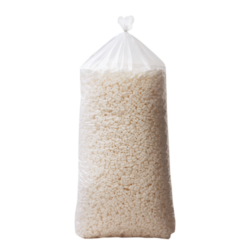5 quick wins to remove plastic from your business
Plastic packaging isn’t always the bad guy, it plays a crucial role in reducing food waste and minimising damage to fragile items in the supply chain. However, with the introduction of a new plastic levy in the European Union (EU) and a proposed plastic tax in the UK, reviewing the use of plastic in your business has become more urgent than ever.
The new taxes explained…
The EU plastic tax, which came into force on 1st January 2021, requires each Member State to pay €800 per tonne of non-recyclable plastic waste. How this is settled varies from country to country, but there has been speculation that the costs might be passed directly on to producers through taxation.
The UK has left the EU, but the new rules could have a knock-on effect on British companies that import plastic packaging from Europe, leading to higher prices.
In comparison, the proposed UK plastic tax that will take effect from April 2022 could have a more direct impact on UK businesses. The tax relates to plastic packaging produced or imported into the UK that contains less than 30% recycled material.
This may affect the price you pay for your packaging, as manufacturers and importers are likely to pass on additional costs to the end-user.
Plastic-free packaging solutions
New taxes should not be the only incentive for companies to reduce their use of plastics. Many British consumers are concerned about the environment and support the government’s policies to combat harmful plastic packaging.
A customer survey by YouGov has found that half of respondents would pay more for products with eco-friendly packaging. 69% believe that all companies should be legally obliged to use environmentally-friendly packaging, even if that means higher prices.
With this in mind, we have put together 5 plastic alternatives that will help you meet customers’ expectations and limit the use of plastic in your operation.
#1. Bubble Wrap vs. Paper Cushioning
Paper packaging solutions such as Geami WrapPak® are perfect environmentally-friendly alternatives to widely-used bubble wrap. Geami combines a die cut Kraft paper with a tissue interleaf paper and provides excellent protection during transport, while ensuring that your products look beautiful inside the package.
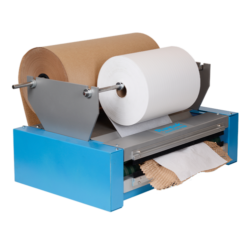
#2. Packing Chips vs. Bio Loosefill
If you use packing chips, consider switching to a bio substitute. Pelaspan® Bio loosefill is made from cornstarch and is 100% compostable. The chips are S-shaped for optimal interlocking and secure cushioning, and are a lightweight, free-flowing and cost-effective afternative to your current solution.
#3. Plastic vs. Paper Mailing Bags
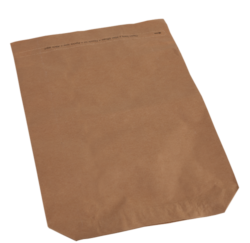
Paper mailing bags are fully recyclable and feature a self-sealing strip for better product protection, easy opening and neat presentation. All this contributes to creating a positive customer experience and increases your green credentials.
#4. Standard vs. Paper Tape
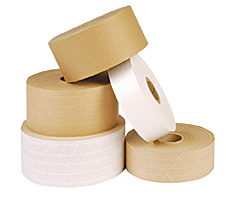
Gummed paper tape
Gummed paper tape, also known as water-activated tape, is a sustainable, 100% recyclable alternative to standard packing tapes. It is made from degradable materials and does not need to be removed from the box before recycling. It ensures a neat appearance of your parcels and provides excellent transit protection, enhancing customer experience.
#5. Stretch Wrap Optimisation
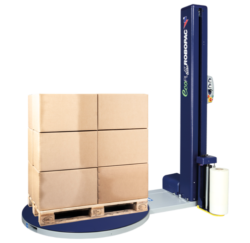
Unfortunately, some products, such as stretch wrap, do not have a paper-based alternative that would provide the same level of product protection. In these cases, businesses can focus on reducing the amount of material they use. Stretch automation is an excellent solution that comes with a range of benefits, including increased productivity and reduced costs.
At Macfarlane Packaging, we have a wide range of sustainable packaging solutions to help your business reduce plastic use and meet its CSR goals.
Visit our Alternatives to Plastic page to see our range of eco-friendly products, or contact us today to discuss your specific requirements.
